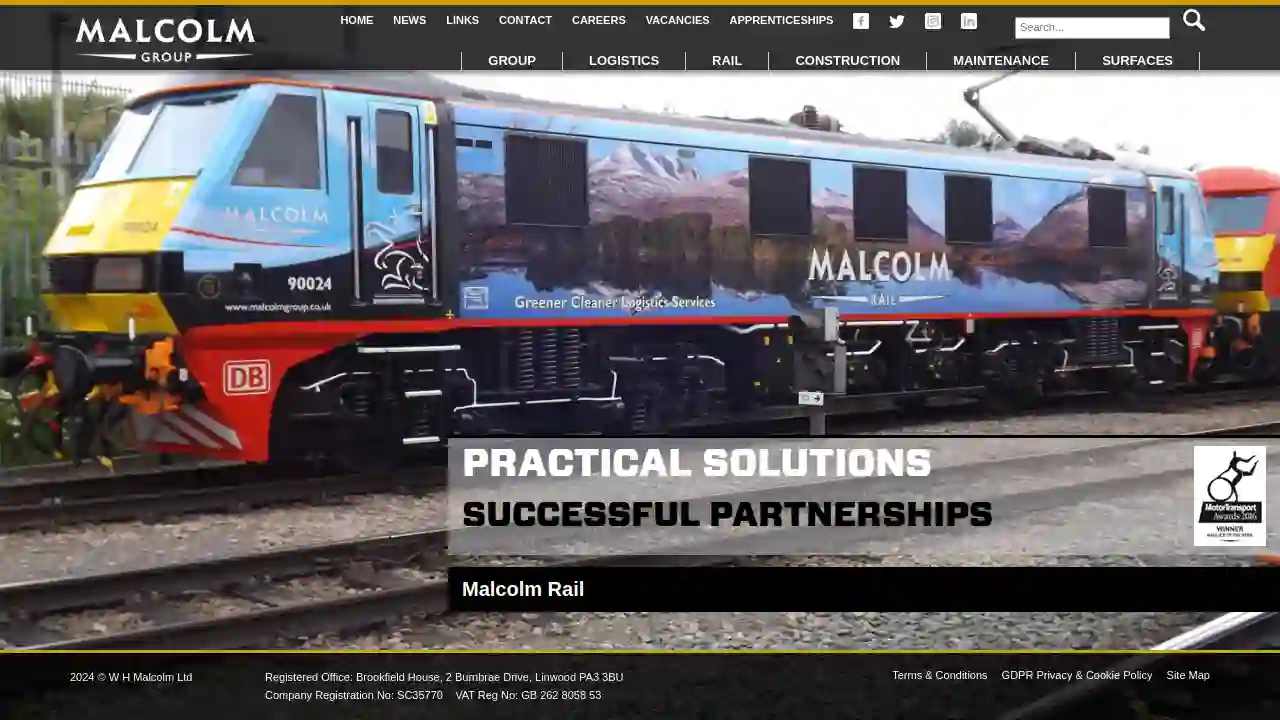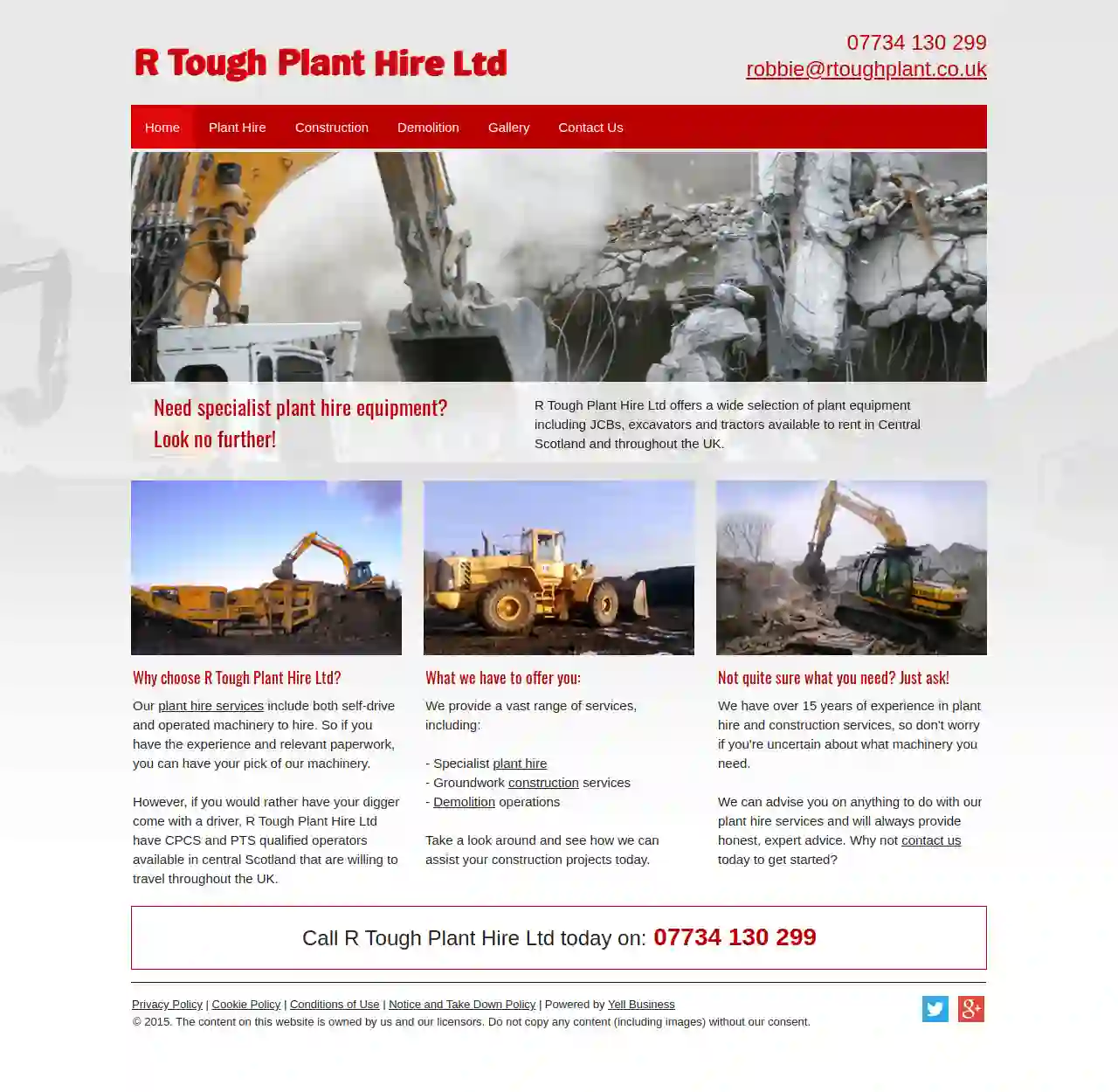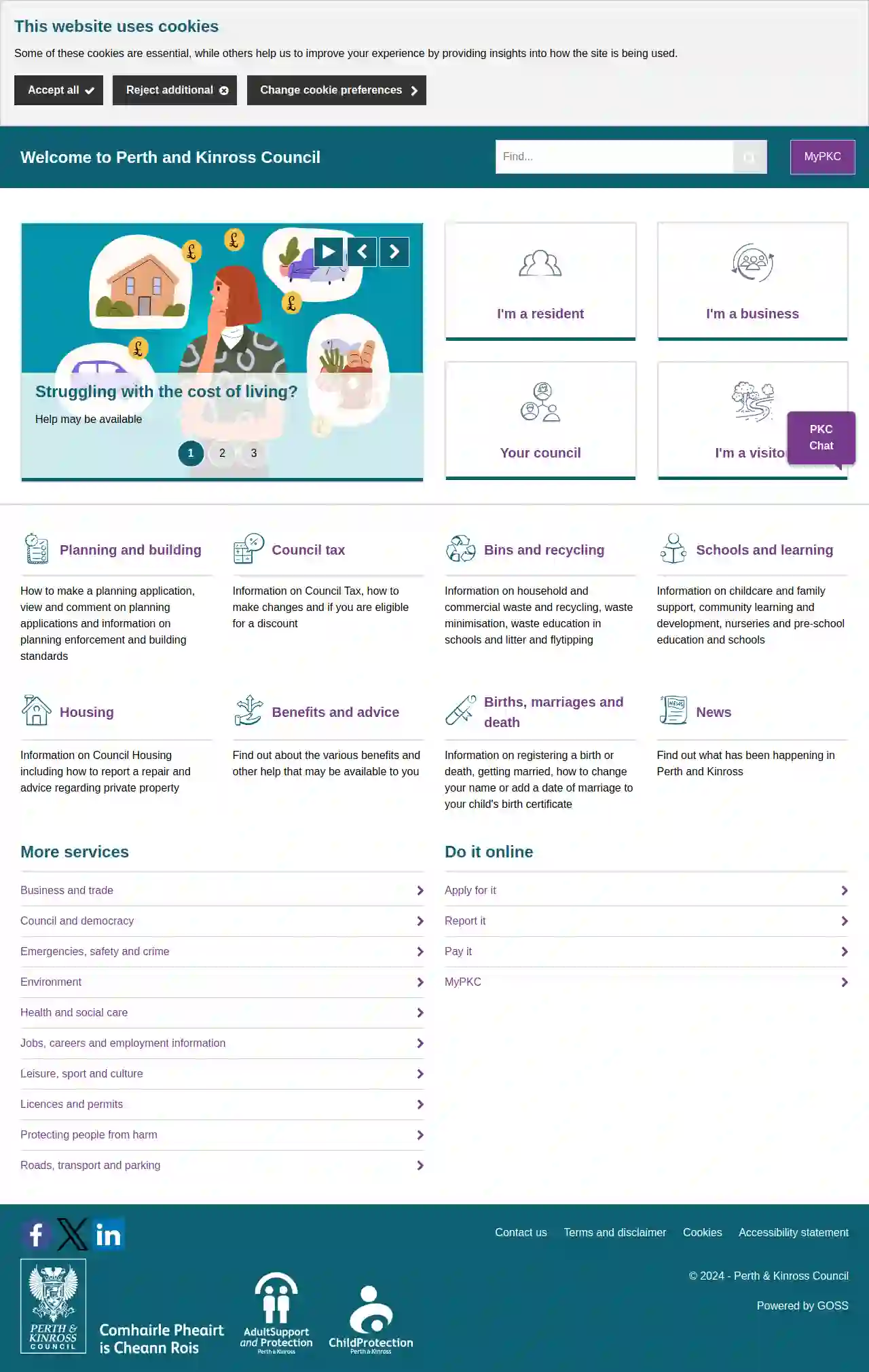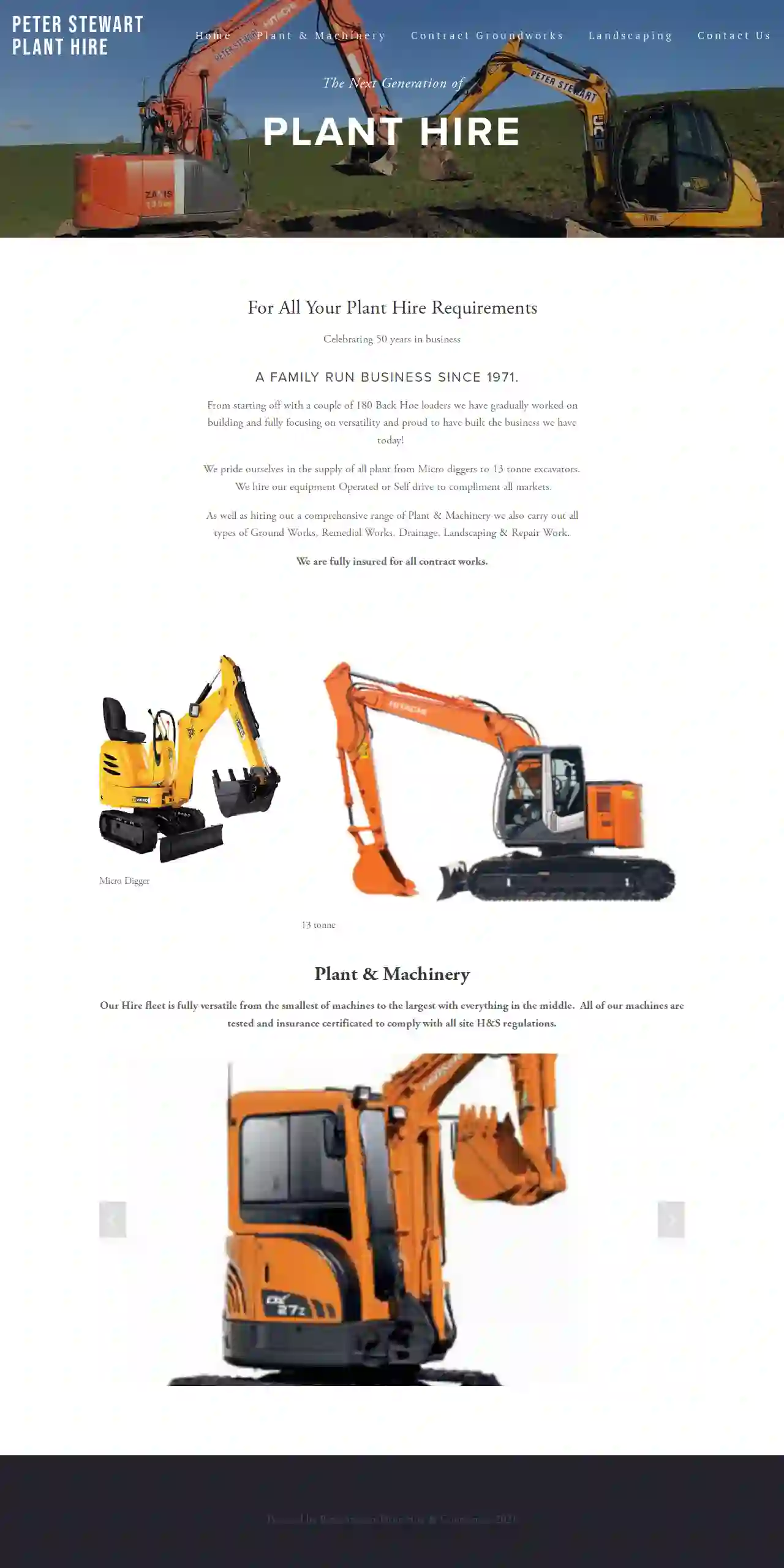Excavation Contractors Clackmannan
Find top Trenching Services in Clackmannan
Get 3 FREE Excavation Services quotes for your project today! Compare profiles, reviews, accreditations, portfolio, etc... and choose the best service.

Malcolm Construction
441 reviewsBrookfield House, 2 Burnbrae Drive, Linwood, PA3 3BU, GBThe Malcolm Group The Malcolm Group is a leading provider of practical solutions to businesses throughout the UK. We offer a wide range of services, including logistics, rail, construction, maintenance, and surfaces. We are committed to providing our customers with the highest quality of service and value for money. Our History The Malcolm Group has a long and proud history, dating back to 1934. We have grown from a small family business into a major player in the UK economy. We are committed to investing in our people and our infrastructure to ensure that we can continue to provide our customers with the best possible service. Our Values Our values are at the heart of everything we do. We are committed to: Providing our customers with the highest quality of service Investing in our people and our infrastructure Being a responsible and sustainable business Building strong relationships with our customers and suppliers
- Services
- Why Us?
- Gallery
Get Quote
R Tough Plant Hire
51 reviewsCroftfoot Farm, Tupps Road, Croftfoot Farm Tupps Road Carluke Lanarkshire, Carluke, ML8 4QX, GBR Tough Plant Hire Ltd: Your Trusted Partner for Construction Projects in Central Scotland R Tough Plant Hire Ltd is a well-established company with over 15 years of experience in plant hire and construction services. We offer a comprehensive range of services, including specialist plant hire, groundwork construction, and demolition operations. Whether you're a homeowner tackling a DIY project or a large construction company undertaking a major development, we have the expertise and resources to meet your needs. We understand that construction projects can be complex, and we're here to make the process as smooth and stress-free as possible. Our team of experienced professionals will work closely with you to understand your requirements and provide tailored solutions. We pride ourselves on our commitment to quality, safety, and customer satisfaction. Our plant hire services include both self-drive and operated machinery. If you have the experience and relevant qualifications, you can choose from our wide selection of JCBs, excavators, and tractors. Alternatively, we have CPCS and PTS qualified operators available to operate the machinery for you. We are based in central Scotland and are happy to travel throughout the UK. In addition to plant hire, we also offer a full range of groundwork construction services, including drainage, foundations, concrete works, and road crossings. Our demolition services are fully insured and we are experienced in a variety of demolition projects. We can also provide recycled aggregates as a cost-effective alternative to quarry products. At R Tough Plant Hire Ltd, we are committed to providing our clients with the highest level of service. We are always happy to answer your questions and provide expert advice. Contact us today to discuss your project and get a free quote.
- Services
- Why Us?
- Gallery
Get Quote
Perth & Kinross Council
2.355 reviewsPerth, GBPerth & Kinross Council: Serving Our Community Perth & Kinross Council is dedicated to providing essential services and supporting the well-being of our residents, businesses, and visitors. We strive to create a thriving and sustainable community for all. Our website offers a comprehensive range of information and services, covering everything from council tax and recycling to planning applications and local events. We are committed to transparency and accessibility, ensuring that our services are easy to find and use. Explore our website to discover the many ways we are working to improve the lives of our residents and build a brighter future for Perth & Kinross.
- Services
- Why Us?
- Gallery
Get Quote
GAP Hire Solutions - Motherwell
3.623 reviewsCitypoint 2, 25 Tyndrum Street, Glasgow, G4 0JY, GBAt GAP Hire Solutions, we are committed to empowering your projects with efficiency, reliability, and unmatched innovation. Watch how our solutions seamlessly elevate your construction projects. Don't miss this opportunity to experience the future of construction. Our Divisions Plant Hire Tool Hire Lifting & TIC Non-Mechanical Trenching & Shoring Survey & Safety Welfare Services Tanker Services Event Services Pump Services If you have any questions or would like to discuss how GAP can uplift your projects, feel free to reach out to our friendly team here.
- Services
- Why Us?
- Gallery
Get Quote
ECOTECH
Office 1 Cameron House 17 Glasgow Road, Hardgate, Clydebank, Scotland, G81 5PJ, GBRENEWABLE ENERGY IN SCOTLAND Contact our electricians at Ecotech Contracts Ltd. We serve Glasgow and across the UK and Republic of Ireland. OVER 50 YEARS' EXPERIENCE Ecotech Contracts Ltd is a Scotland based solar energy company dealing with commercial clients across Scotland. With the cost of energy rising at an unimaginable pace, it is the aim of Ecotech Contracts Ltd to help large businesses take control of these cost increases using the huge potential for energy generation found within solar technology. SOLAR FOR THE HOME At Ecotech Contracts Ltd in West Dunbartonshire, we can help you towards making major savings on your energy bills by installing solar panels for your home. Excess energy can either be stored by you or sold to the grid. WIND TURBINES Our highly skilled team has installed over 10 wind and solar farms across the UK. A wind turbine can produce an enormous amount of green energy for your business and is a fantastic signpost that your business is committed to sustainability. EV CHARGING With the rising cost of petrol, and more investment in the EV industry, it’s no wonder that EVs are becoming increasingly popular. Charging an EV can take as little as 30 minutes. DOMESTIC RETROFIT WORK We provide whole house retrofit assessments, to assess all required energy efficiency measures to ensure properties are progressing towards the 2050 net zero target in line with PAS 2035 standards. COMMERCIAL SOLAR Solar panels can be an excellent return on investment and increase your eco-credentials, and they can recoup their installation costs in a few years. How ecologically friendly your business is will increasingly influence potential customers. BATTERY STORAGE It is possible to sell any excess energy to the grid, however more and more people are opting to invest in battery storage so they can use all the energy they produce. ELECTRICAL CONTRACTING We have many years’ experience across all sectors of industry. For all kinds of domestic, industrial, and commercial electrical projects we exceed expectations and provide an excellent service. Our Project Managers will ensure the work is completed safely and efficiently. PPA Ecotech Contracts Ltd are a developer and work in partnership with an investor in renewable energy projects across many markets including the UK. As part of this, we offer a range of energy supply options, which have the potential to reduce customers' energy costs whilst offering 100% renewable energy supply.
- Services
- Why Us?
- Our Team
- Gallery
Get Quote
EBS Construction
3.89 reviews10 Loanbank Quadrant, Glasgow, G51 3HZ, GBEBS Construction: Your Trusted Partner for Property Maintenance and Restoration in Glasgow EBS Construction is a leading provider of property maintenance and restoration services in Glasgow. We are experts in all aspects of building restoration, including lime mortar, lead work, slate work, and specialist masonry. Our team of fully trained and highly skilled professionals across all trades ensures that we deliver a high-quality and fully comprehensive service. Our Commitment to Excellence At EBS Construction, we are committed to providing our clients with the highest quality workmanship and customer service. We subscribe to Construction Line, the UK register of Pre-Qualified Construction Services, giving our clients the assurance of our expertise and reliability. Our Services We offer a wide range of services, including: Project Management Conservation and Restoration work Specialist Masonry Re-pointing; lime mortar Structural repairs Roof repairs Complete internal and external decoration Domestic large and small Lead work Slate work Timber rot eradication Our Approach We are dedicated to delivering cost-effective and time-efficient solutions without compromising on quality. We utilize the latest industry technology from the initial planning stages to accurately plan and forecast projects. Our Directors and team of professional tradesmen work diligently to ensure that your project is completed to the highest standards, on schedule, and within budget. Why Choose EBS Construction? We are a trusted and experienced team with a proven track record of delivering exceptional results. We are committed to providing our clients with a seamless and stress-free experience. Contact us today for a free, no-obligation quote and let us help you bring your project to life.
- Services
- Why Us?
- Gallery
Get Quote
Emtec Off-Site Manufacturing Facility
Ellismuir Way, Tannochside Park, Uddingston, G71 5PW, GBWe Stand Together Your Partner of Choice Emtec Group is a leading contractor in the building services sector providing professional, quality and cost efficient services throughout the UK. Via our group companies, we provide our clients with a full building services solution. Although we encompass a variety of separate businesses and capabilities, we are one group with a common goal: working together to be the Partner of Choice for our clients. We believe the key to our success has been our staff and building long standing relationships with our clients. All our employees are fully committed to ensuring that the service we offer meets and exceeds our clients expectations time after time. Our mission is to be Your Partner of Choice. Through excellence in customer service, quality, and assured delivery. Being people focused, with relationships and reputation being built on honesty, integrity and by providing safe sustainable business solutions.
- Services
- Why Us?
- Gallery
Get Quote
SD Clark Planthire & Groundworks
4.36 reviewsQuarrybank Alyth Rd, Rattray, Blairgowrie, PH10 7HQ, GBGroundworks & Plant Hire With SD Clark Planthire & Groundworks in Perthshire PROVIDING PLANTHIRE & GROUNDWORKS IN SCOTLAND FOR OVER 25 YEARS Contact Us Now Operated Plant Hire & Groundwork Contractors In Perthshire & The Whole Of Scotland - A Little About Us Based in Blairgowrie, Perthshire, Scotland, SD Clark Planthire & Groundworks is a family run firm with over 25 years' experience in both the construction and agricultural industry. We provide bespoke groundworks and operated plant hire throughout Scotland. We take pride in delivering work carried out to a professionally high standard, which is highlighted in our testimonials. Being fully insured and ISO accredited gives our clients the reassurance and satisfaction that our work is carried out to the highest of standards. OUR SERVICES - Superior Quality Services Guaranteed Groundwork services Standards guaranteed Concrete supply Testimonials Plant and machinery hire Contact OUR SPECIALISED SERVICES As leading groundworks contractors in Perthshire, our services extend across Scotland. Whether it's fundamental groundworks or intricate projects using advanced machinery, we're dedicated to assisting you comprehensively. Forestry Road Construction Construct durable forestry roads with our expertise, ensuring accessibility to remote areas. Our precision in planning and execution guarantees reliable routes for your forestry operations. Horse Arenas Create the perfect equestrian arena with our specialised construction services. From the foundation to the finishing touches, we ensure a safe and optimal environment for both riders and horses. Demolition Work Trust us for safe and efficient demolition services. Whether it's a small-scale structure or a larger project, our experienced team utilises industry-best practices to ensure precision and safety throughout the process. SATISFIED CLIENTS SPEAK Joe M. New Build Foundations, Drainage, And Concrete Slab - Fantastic Job, Highly Recommend “Sean is the consummate professional; he delivers a superior quality product at a very competitive price, I hope to have Sean back to the build to do the blockwork and driveway.”
- Services
- Why Us?
- Testimonials
- Gallery
Get Quote
Drain Fix Solutions
4.961 reviewsGlasgow, GBAbout Us We are a locally owned business covering Glasgow and the West with over 8 years experience in the drainage industry. All our staff are fully trained and qualified so you know you are in the best hands when it comes to your drainage issues. We have probably dealt with every drainage problem imaginable so there’s not an issue too small or big. Our phone lines are operational 24/7 so you can call us anytime to book in your appointment. We specialise in all aspects of Domestic and Commercial Drainage issues and aim to carry out the works as quickly and efficiently as possible meaning less disruption for our customers. We offer a mix of fixed pricing and job rates for our services and all works are explained to you prior to commencement to ensure you are aware of what the job entails and the cost before starting. Please click on one of our services to find out more.
- Services
- Why Us?
- Testimonials
- Gallery
Get Quote
Peter Stewart Plant Hire & Contractors
45 reviewsMossywood House, Cumbernauld, G67 4HF, GBPeter Stewart Plant Hire is a family-run business that has been serving the plant hire industry for over 50 years. We started with a couple of 180 Back Hoe loaders and have grown to offer a wide range of plant and machinery, from micro diggers to 13-tonne excavators. We pride ourselves on our versatility and our commitment to providing our customers with the best possible service. We offer both operated and self-drive hire options to suit all markets. In addition to our plant hire services, we also offer a range of groundworks, remedial works, drainage, landscaping, and repair services. We are fully insured for all contract works. Our hire fleet is fully versatile, from the smallest of machines to the largest, with everything in between. All of our machines are tested and insurance certificated to comply with all site H&S regulations.
- Services
- Why Us?
- Gallery
Get Quote
Over 13,059+ Excavation Contractors onboarded
Our excavation companies operate in Clackmannan & surrounding areas!
ExcavationHQ has curated and vetted the Best Excavation Contractors in Clackmannan. Find a top & trustworthy business today.
Frequently Asked Questions About Excavation Contractors
- Utility Locates: Contact your utility companies to mark the locations of underground lines before excavation begins. This is usually a free service.
- Hand Digging: Excavate carefully by hand near marked utility lines to avoid damage.
- Potholing: Digging small test holes to expose and verify utility depths and locations.
- Safe Distances: Maintaining a safe distance between excavation equipment and marked utility lines.
- Vacuum Excavation: Using vacuum excavation techniques to expose utilities without digging, reducing the risk of damage.
- Basement Size: The larger the basement, the more excavation is required, increasing the cost.
- Soil Type: Excavating rocky or dense clay soil is generally more expensive than loose soil.
- Accessibility: Difficult-to-access sites might require specialized equipment or more labor, driving up costs.
- Foundation Type: The chosen foundation type (full basement, crawl space, slab) affects excavation needs.
- Underpinning: If underpinning (strengthening existing foundations) is necessary, it significantly increases costs.
- Disposal Fees: Hauling excavated soil to disposal sites adds to the overall expense.
- Trench Collapses: Unstable trench walls can cave in, posing a severe risk to workers. Proper shoring and sloping are crucial safety measures.
- Utility Damage: Striking underground utilities (gas, water, electric) can cause leaks, explosions, or electrocution. Accurate utility locates and careful digging are essential.
- Falling Objects: Materials or equipment falling into excavations can injure workers. Securing work areas and using appropriate safety gear is vital.
- Equipment Accidents: Operating heavy machinery involves risks of rollovers, collisions, or mechanical failures. Trained operators and proper equipment maintenance are critical.
- Environmental Hazards: Excavated soil might contain hazardous materials (asbestos, lead). Proper testing and disposal procedures are necessary.
How do you protect utilities during excavation?
How much does it cost to excavate a basement?
What are the risks associated with excavation?
What is the difference between excavation and grading?
Excavation: Primarily involves removing earth or other materials from a site. It's about digging down and creating space.
Grading: Focuses on shaping and leveling the ground to a specific slope or elevation. It's about adjusting the existing terrain.
For example, you might excavate a foundation and then grade the surrounding area to ensure proper drainage and a level surface for landscaping.
How do you protect utilities during excavation?
- Utility Locates: Contact your utility companies to mark the locations of underground lines before excavation begins. This is usually a free service.
- Hand Digging: Excavate carefully by hand near marked utility lines to avoid damage.
- Potholing: Digging small test holes to expose and verify utility depths and locations.
- Safe Distances: Maintaining a safe distance between excavation equipment and marked utility lines.
- Vacuum Excavation: Using vacuum excavation techniques to expose utilities without digging, reducing the risk of damage.
How much does it cost to excavate a basement?
- Basement Size: The larger the basement, the more excavation is required, increasing the cost.
- Soil Type: Excavating rocky or dense clay soil is generally more expensive than loose soil.
- Accessibility: Difficult-to-access sites might require specialized equipment or more labor, driving up costs.
- Foundation Type: The chosen foundation type (full basement, crawl space, slab) affects excavation needs.
- Underpinning: If underpinning (strengthening existing foundations) is necessary, it significantly increases costs.
- Disposal Fees: Hauling excavated soil to disposal sites adds to the overall expense.
What are the risks associated with excavation?
- Trench Collapses: Unstable trench walls can cave in, posing a severe risk to workers. Proper shoring and sloping are crucial safety measures.
- Utility Damage: Striking underground utilities (gas, water, electric) can cause leaks, explosions, or electrocution. Accurate utility locates and careful digging are essential.
- Falling Objects: Materials or equipment falling into excavations can injure workers. Securing work areas and using appropriate safety gear is vital.
- Equipment Accidents: Operating heavy machinery involves risks of rollovers, collisions, or mechanical failures. Trained operators and proper equipment maintenance are critical.
- Environmental Hazards: Excavated soil might contain hazardous materials (asbestos, lead). Proper testing and disposal procedures are necessary.
What is the difference between excavation and grading?
Excavation: Primarily involves removing earth or other materials from a site. It's about digging down and creating space.
Grading: Focuses on shaping and leveling the ground to a specific slope or elevation. It's about adjusting the existing terrain.
For example, you might excavate a foundation and then grade the surrounding area to ensure proper drainage and a level surface for landscaping.